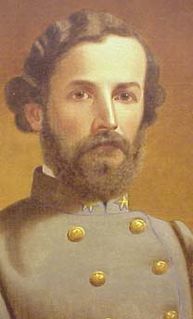George Lillie Craik (1798–1866) was a Scottish writer and literary critic.
Donald Craik was a politician in Manitoba, Canada. He was a Progressive Conservative member of the Legislative Assembly of Manitoba from 1966 to 1981, and served as a cabinet minister in the governments of Walter Weir and Sterling Lyon.

Kenneth James William Craik was a Scottish philosopher and psychologist.

James Craik was Physician General of the United States Army, as well as George Washington's personal physician and close friend.

Craik is a town in south central Saskatchewan, Canada, incorporated on August 1, 1907. It is strategically located along Provincial Highway 11 in the RM of Craik No. 222, 140 km southeast of Saskatoon and 117 km northwest of Regina.

Craik No. 222, Saskatchewan in Canada is located centrally between the cities of Regina and Saskatoon. It is home to the communities of Craik and Aylesbury.

Arbigland Estate in the historical county of Kirkcudbrightshire, Dumfries and Galloway, Scotland, lies on the coast of the Solway Firth, to the south-east of Kirkbean.
William Craik was a United States Representative from Maryland. Born near Port Tobacco, Maryland, he attended Delameve School in Frederick County, studied law, was admitted to the bar and commenced practice in Port Tobacco and Leonardtown. He moved to Baltimore and was appointed chief justice of the fifth judicial district of Maryland on January 13, 1793, and served until his resignation in 1796.
Fergus Ian Muirden Craik FRS is a cognitive psychologist known for his research on levels of processing in memory. This work was done in collaboration with Robert Lockhart at the University of Toronto in 1972 and continued with another collaborative effort with Endel Tulving in 1975. Craik has received numerous awards and is considered a leader in the area of memory, attention and cognitive aging. Moreover, his work over the years can be seen in developmental psychology, aging and memory, and the neuropsychology of memory.

Dugald McCoig Cowan was a Scottish educationalist and Liberal politician.
Events from the year 1723 in Ireland.

Henry Craik was a Scottish hebraist, theologian and preacher.

Col. George Patton Sr. was a Confederate colonel during the American Civil War. He was the grandfather of World War II general George S. Patton. George Patton was also the great-grandfather of Major General George Smith Patton, who died in 2004.
Events from the year 1805 in Scotland.
Dumfries was a royal burgh that returned one commissioner to the Parliament of Scotland and to the Convention of Estates.
Helen Craik was a Scottish poet and novelist, and a correspondent of Robert Burns. She praised Burns for being a "native genius, gay, unique and strong" in an introductory poem to his Glenriddell Manuscripts.
In fluid dynamics, the Craik–Leibovich (CL) vortex force describes a forcing of the mean flow through wave–current interaction, specifically between the Stokes drift velocity and the mean-flow vorticity. The CL vortex force is used to explain the generation of Langmuir circulations by an instability mechanism. The CL vortex-force mechanism was derived and studied by Sidney Leibovich and Alex D.D. Craik in the 1970s and 80s, in their studies of Langmuir circulations.
Very Rev James Craik DD (1802–1870) was a Scottish minister who served as Moderator of the General Assembly of the Church of Scotland in 1863/4.
William Craik was an educationalist who was a promoter and practitioner of Independent working class education (IWCE). He participated in the strike at Ruskin College in 1909. Following the failure of the strike, he then played a major role alongside George Simms in the use of the Plebs Magazine in advocating the foundation of the Central Labour College as an educational established which saw workers education as a political process.
This page is based on this
Wikipedia article Text is available under the
CC BY-SA 4.0 license; additional terms may apply.
Images, videos and audio are available under their respective licenses.







